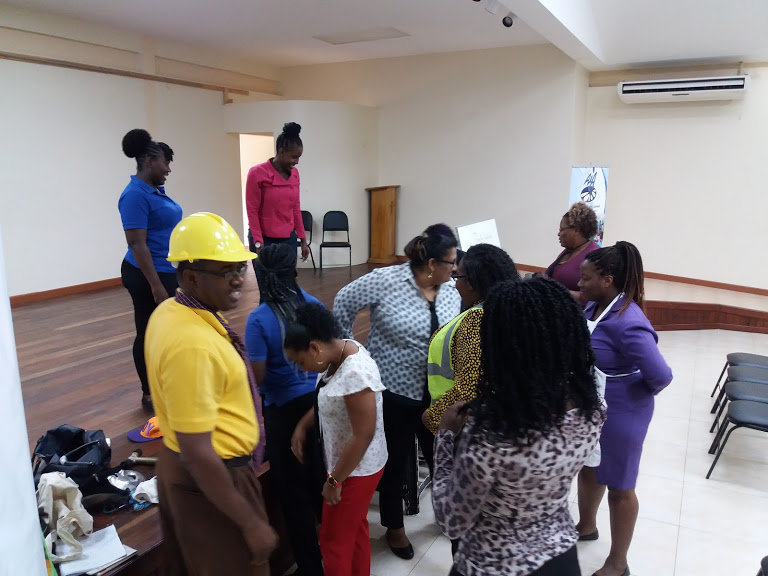Arts-in-Action’s Applied Arts Training for Theatre Practitioners for UN Women was an introductory course to arts-based methodology for educational and developmental work in the communities of the English-speaking Caribbean. The intention was not to force practitioners into the use or application of a particular kind of methodology, but to facilitate a sharing of arts practice which will further support, expand, incite, reinforce, justify and enhance the work of practitioners in their own communities. Further to this, this sharing of arts practice was to support the developmental initiatives of the United Nations and UN Women.
In the case of The Commonwealth of Dominica, the training was implemented over a period of five days: March 4th to 8th, 2016, 9am to 3pm and involved ten (10) Theatre Practitioners working in Dominica:
The Facilitator Team:
Arts-in-Action assumed responsibility for the applied arts segments of the training, while Ms. Gabrielle Henderson (UN WOMEN) delivered a workshop/lecture on Gender-Based Violence.
Arts-in-Action’s Facilitation team consisted of two (2) Artist-Facilitators:
- Ms. Patrice Briggs- Artistic Director, Arts-in-Action, Senior Facilitator.
- Mr. Brendon Lacaille- Artistic Programme Manager, Senior Facilitator.
Implementation:
Arts-in-Action Facilitators approached the training sessions with the specific understanding that the sharing of the applied-arts methodology, had as its main objective, the mobilisation of a working applied-theatre practitioner team in Dominica for the purposes of implementing and supporting UN Women-led community outreach/educative/intervention initiatives in the communities of the Commonwealth of Dominica.
The design of training sessions thus took on a practical framework with theoretical support being offered through a Resource Handbook. On the first day, a demonstration of an Arts-in-Action Interactive Performance Workshop was presented to participants. The workshop offered a working model and focused on issues around Gender-Based Violence which were shared by participants during the morning session of the training. There was also the implementation of a post-activity forum throughout the training for participant feedback and enquiries re the shared-methodology. Additionally, alongside the training alignment with tested methodology, for example, Augusto Boal’s Theatre of the Oppressed and Arts-in-Action’s Drama-in-Education and Interactive Performance Workshops, participants were invited to explore traditional arts-based approaches to community education and empowerment, namely through the use of traditional song/ring games and folk music present in Dominican popular culture.

